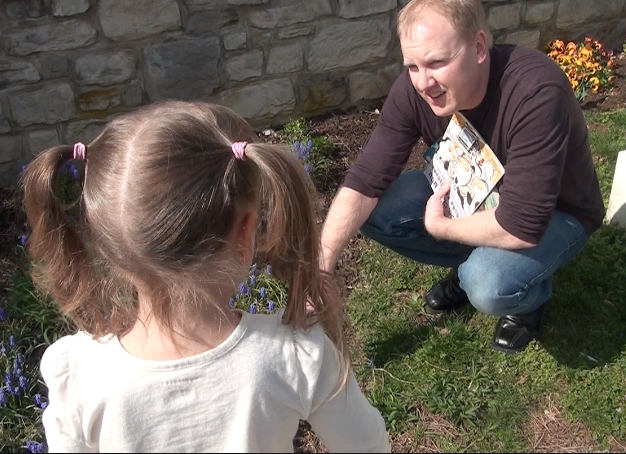
Your 24-month-old is developing a stronger sense of self-awareness. This new awareness helps your toddler realize that he is separate from you and other people and that he has his own thoughts and feelings. He is also beginning to learn that other people have thoughts and feelings that are different from his. With this new realization comes empathy and compassion.
Now that your toddler is able to understand that you and other people have their own thoughts and feelings, she has the ability to feel empathy. Talk to your toddler about these feelings. Point it out to her in different situations. For example, during a play group if another child falls down and skins their knee, say to your child “She is sad because she hurt her knee. Can you give her a hug to make her feel better?” While reading books to your child, point out emotions that the characters might be feeling, for example “The little boy lost his puppy. How do you think he feels? Have you ever felt sad? When is a time you felt sad?” Try to start conversations about other’s emotions and your toddler’s emotions.
Use real-life situations to verify your toddler’s feelings, but also make her aware of other’s feelings. For example, “I know you are mad that you were not allowed to get that balloon, but I am tired and it is time to go home.” It is important to acknowledge his feelings of happiness, anger, sadness, and frustration. Sometimes by simply confirming these emotions, you can help your toddler process them.
References:
Meltzoff, A. N., & Kuhl, P. K. (2016). Exploring the infant social brain: What’s going on in there? ZERO TO THREE, 36(3), 2–9.
National Scientific Council on the Developing Child. (2010). Persistent fear and anxiety can affect young children’s learning and development: Working paper no. 9. Retrieved from http://developingchild.harvard.edu/resources/ persistent-fear-and-anxiety-can-affect-young-childrens-learning-and-development
National Scientific Council on the Developing Child. (2011). Children’s emotional development is built into the architecture
of their brains: Working paper no. 2 (Updated ed.). Retrieved from http://developingchild.harvard.edu/wp-content/ uploads/2004/04/Childrens-Emotional-Development-Is-Built-into-the-Architecture-of-Their-Brains.pdf (Original work published 2004).
Updated 2/19/19

